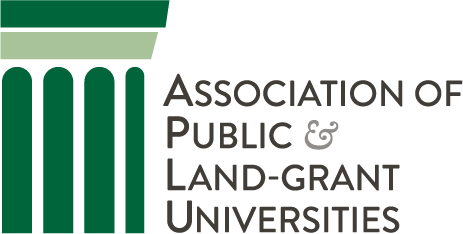Floods. Tornadoes. Ice storms. A Snowpocalypse. It would be easy to think extreme weather events are less of an issue for a university like Louisiana State University Shreveport (LSU Shreveport), where nearly 80 percent of the students are enrolled online.
But Helen Wise, Associate Provost for Academic Affairs at LSU Shreveport, remembers the day 10 years ago when a power outage on campus knocked out the ability for anyone to access the main servers — on or off campus.
“It meant no learning management system and no email communication between faculty and students,” she says. “We had to physically carry computers off campus to get power to extract information.”
Since that catastrophic power outage, LSU Shreveport has grown from 4,400 to 11,000 students — largely due to its success in graduate online education — increasing the need for resilient and adaptable academic services. But another close call last year drove home a hard truth: LSU Shreveport still didn’t have an emergency remote instructional plan in place.
In the meantime, LSU Shreveport was one of eight colleges and universities in Louisiana participating in the Complete College America Accelerator program, which helps cohorts develop action plans to use data to improve student success and close gaps in college access and completion. Through that Wise learned of an opportunity to take a training on Flexible Learning Environments for Improved Student Success, one of the menu of professional development programs available through Every Learner Everywhere and delivered by the Association of Public & Land-grant Universities. She knew it would help her campus with some of its biggest priorities in digital accessibility and online learning.
A team built for student success
Wise, along with a core group of LSU Shreveport faculty and staff, took the training in spring of 2025 with the goal of drafting an emergency remote instructional plan. The team was intentionally cross-functional, bringing a range of experience to the project.
Wise worked with her counterpart Associate Vice Chancellor for Student Success, Angie Pellerin, to identify and remove barriers to student persistence in the event of academic disruption. They were joined by Dr. Joyce Farrow, Chair of the Department of Education, Rhonda Failey, Director of Online Learning, and Yang Xuan, a faculty member from the College of Business, which enrolls more than 90 percent of LSU Shreveport’s online students.
“We each stood in our own area of expertise,” says Wise. “You have to know what you don’t know. I’m not an expert in quality matters, so I made sure someone on our team was. I’m not knee deep in student success initiatives around growth mindset, so I made sure somebody was there from that group.”
Clear objectives and mindset shifts
Once the training began, Wise immediately appreciated how clear the learning objectives were. “We knew on day one what we were going to be walking away with,” she says.
The team went into the training expecting that flexible learning environments were about the technology, says Wise, and hoping to find a piece of software that would solve their problems in case of an emergency. Instead, they came away with the understanding that flexible learning comes from intentionally designing for success from the ground up.
As a result, the team began looking at issues that weren’t initially on their radar, like how better course navigation design can reduce the cognitive load on their students, and how building formative assessments along with summative assessments improves a student’s grasp on the materials.
“We went in thinking it was technology,” says Wise. “We came out thinking it’s pedagogy.”
Expert mentorship to create a hands-on plan
As part of the training, the LSU Shreveport team was matched with an expert mentor who could answer their questions and help personalize the training to their objectives.
As Wise says, “Rather than just taking a class and trying to put our triangle into a square hole, we were able to take the information and work with an expert who could tell us what to do with it.”
Their mentor, Julian, acted as a project manager to help keep the team on track. He also helped them develop more than their emergency response plan.
Wise notes that while the main purpose of the training was to come away with a toolkit to solve a specific problem, the experience also gave them a framework for tackling other similar problems on the campus. “The other thing we came away with was this cultural awareness of how we tackle these problems from start to finish on our own campus,” says Wise. “It was a gift.”
At first glance, the idea of creating an emergency remote instruction plan seemed straightforward, but as the group began working together, it became clear that different people were bringing different assumptions to the table. A big part of that was understanding the need to begin with a shared language.
A clear path forward
The plan will be implemented starting in January, once LSU Shreveport has onboarded a new Executive Director of Curriculum and Instruction to lead the rollout. But the frameworks learned in the training have already changed the way the LSU Shreveport team solves emerging problems on campus.
Wise emphasizes three factors that led to a successful training.
- Build a cross-functional team from the start and ensure diversity of expertise.
- Make sure everyone has a shared definition of all terms and priorities before jumping into solutions.
- And focus on intentional design from the ground up, not just technology fixes.
“It was one of the most collaborative, democratizing experiences I’ve had,” says Wise.
Learn more about creating flexible learning environments


